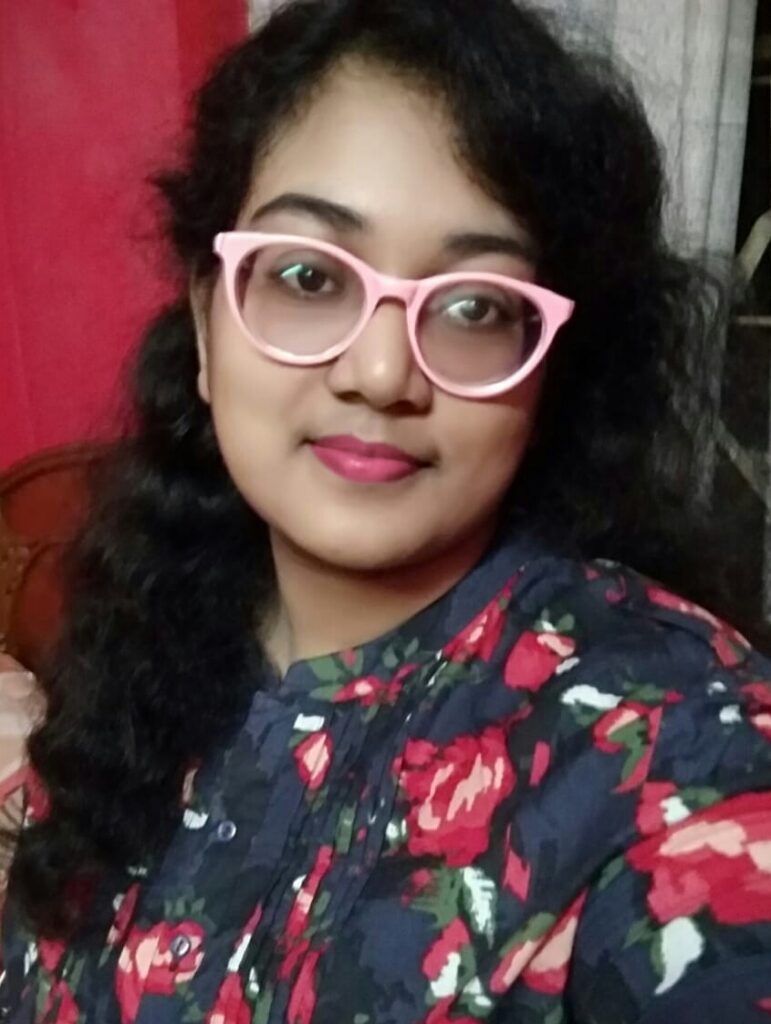
The day when a baby is born , his/ her beloved parents and relatives emerged some dreams with them and sometimes those dreams become the purpose of living. Sometimes the child creates its own mission and vision. The only purpose of this is to achieve success at the end. Though the definition of success differs from people to people , but human beings work hard to get a better and a secure future. People work hard , make plans for career developments to avoid fear of insecurity for the future with a better career and profession. Everybody has their own goals and preferences regarding their choice of profession. Students who have a dream of pursuing their career as a researcher or want to become a lecturer , it is mandatory for them to qualify the UGC NET examination. A lecturer has the responsibility to develop and build a strong personality of the student and to guide them in better ways. Students should grasp enough knowledge and prepare thoroughly to crack the UGC NET examination without losing confidence. As Eleanor Roosevelt asserts, ‘ The future belongs to those who believe in the beauty of their dreams’. Similarly , students can write their own fortune , create their own destiny by determining the goals and executing them in proper action.
Introduction to NTA-UGC-NET and Eligibility for Appearing in the Examination:
The National Eligibility Test ( NET ) , also known as UGC NET , has recently been conducted by National Testing Agency ( NTA) , an autonomous and self-sustained testing organization to conduct different examinations for admission and fellowship in higher educational institutions. NTA-UGC-NET is the test that determines the eligibility for the post of Assistant Professor as well as for Junior Research Fellowship (JRF) award in Indian universities and colleges. UGC NET is considered as one of the toughest exams in India , but as we all know that nothing is impossible. With appropriate guidelines and preparation , one can easily pass the examination. An aspirant professor should secure at least 55% aggregate marks in post graduation from any recognized university , to become eligible applying for the NET exam. An advantage of this exam is that there is no age restriction to apply for the post of Assistant Professor. Although candidates should not be more than 30 years in age in order to sit for the Junior Research Fellowship (JRF) , a scheme of the UGC , to provide opportunities to NET qualified candidates for three years to undertake advanced studies and research leading to M.Phil. or PhD degrees in the specified subject. Furthermore , there is no deadline of the score card of Assistant Professor , meaning once a student qualified the UGC NET Assistant Professor , he/she could attend the interviews for the post of Assistant Professor , organized by different colleges and universities in India , for his/ her lifetime.
Syllabus of NTA UGC NET ( General Paper and Subject Paper English ) , Question Pattern, Cut Off Marks :
NTA-UGC-NET comprises of two papers – Paper I and Paper II , which has been held consecutively without any break. The total duration of the exam is 3 hours , where students are free to devote any amount of time to any paper. However , this exam is conducted in online mode , twice a year , mostly in the month of June and December. This Computer Based Test ( CBT ) covered 81 subjects , almost across 700 centres in 219 cities. Applicants are required to appear for both the papers so that they can become eligible for JRF and Assistant Professor or Assistant Professor only. The questions in both the papers are objective in nature , which means all the questions would be of Multiple Choice Type ( MCQs ). Paper I contains , 50 questions , each carries 2 marks , while total marks is 100 and Paper II includes 100 questions , 2 marks allotted for each questions , maximum marks is 200. So the exam consists 150 MCQs in total with 300 marks , and the duration of solving 150 MCQs is 180 minutes. Each question carries four options , the student must select the most appropriate answer among the multiple choices. All the questions are compulsory to attempt. Another advantage of this exam is that there is no negative marking for incorrect answer , so the candidate can use their calculated guess to mark the answer instead of leaving the question blank. If NTA decides to drop a question for any reason , whether it is found to be incorrect or any other issue , the benefit of full marks will be given to those candidates who have attempted that particular question. Another facility that has been provided by NTA is that the candidates are allowed to challenge the provisional answer keys in online mode by paying a particular amount of fees which is also refunded if the challenges are accepted by NTA.
Each and every exam has a specific syllabus. NTA-UGC-NET is nothing exceptional. Syllabus of this exam is designed to evaluate different skills of the applicants. Paper I is similar and compulsory for all candidates applied for any subject. Paper I assesses the teaching and reasoning ability of the candidate , as well as research aptitude , comprehension , divergent thinking and general awareness. Whereas , Paper II is based on the particular subject chosen by the candidate , which assesses his/ her in – depth knowledge and expertise in the respective subject. There are ten topics in Paper I , five questions from each of the ten topics come in the exam. The following topics are :
- Teaching Aptitude
- Research Aptitude
- Comprehension
- Communication
- Mathematical Reasoning and Aptitude
- Logical Reasoning
- Data Interpretation
- Information and Communication Technology
- People , Development and Environment
- Higher Education System
The details of Teaching Aptitude are as follows:
Concepts , Features , Levels of teaching; Learner’s characteristics; the factors that affect teaching including teacher , learner , support material etc.; Different online and offline methods of teaching; Evaluation System etc.
The details of Research Aptitude are as follows:
Meaning , Types , Characteristics of research , the different methods of research , steps , format of research etc.
The details of Comprehension are as follows:
A passage of text will be given. Questions will be asked from the passage to be answered. So a minute reading of the passage is important.
The details of Communication are as follows:
Meaning , Types , Characteristics of communication , Barriers to effective communication , Mass Media and Society.
The details of Mathematical Reasoning and Aptitude are as follows:
Types of reasoning, Number Series , Codes , Relationships and Mathematical Aptitude ( Fraction , Proportion , Averages , Profit and Loss , Percentage etc.)
The details of Logical Reasoning are as follows:
Inductive and deductive reasoning , analogies , Venn diagram, Indian Logic , Pramanas etc.
The details of Data Interpretation are as follows:
Sources , Acquisition, Classification of data , Quantitative and Qualitative data , Data interpretation , Data and Governance.
The details of ICT are as follows:
General abbreviations and terminology , ICT , Digital initiatives in higher education , Basics of Internet , Email etc.
The details of People , Development and Environment are as follows:
Millennium and Sustainable development goals , Different environmental issues , Natural and energy resources , Montreal Protocol , Kyoto Protocol, Rio Summit , International Solar Alliance etc.
The details of Higher Education System are as follows:
Institutions of Higher Learning and education in ancient India , Evolution of research in Post Independence India and recent policies , Governance , Administration related to higher education of India.
Paper II focuses on the syllabus of the subject English in this essay. This paper is also divided into ten units. But the number of questions from each unit varies. The following units are as follows:
Unit I : Drama
Unit II : Poetry
Unit III : Fiction , Short Story
Unit IV : Non – Fictional Prose
These four units cover all literatures in English and must also be tested through comprehension passages to evaluate critical reading , thinking and writing skills.
Unit V : Language : Basic Ideas , Theories and Pedagogy , Applied English .
Unit VI : English in India : History , Progress and Features
Unit VII : Cultural Studies
Unit VIII : Literary Criticism
Unit IX : Literary Theory
Unit X : Research Methods used in English
There are certain criteria for determining UGC NET cut off for each subject –
The number of candidates qualified in UGC NET is the 6% of the candidates appear in both the papers of the exam and total slots are allocated to candidates belonging to different categories following the reservation policy of Government of India. The cut off percentage of marks for English for the general category was 63.33% ( JRF and Assistant Professor ) and 54.67% for only Assistant Professor in December 2019. The cut off percentage for SC, ST , and OBC was 54.67%, 53.33% and 57.33% respectively for JRF and Assistant Professor while the SC, ST ,OBC had to secure 46.00% , 44.67% and 48.67% respectively for qualifying Assistant Professor only.
Key to Success ( Proper Guidelines for Preparation with Some Recommended Books and Online Materials):
If someone want to fulfil his/her dream , nothing can stop them. It is like the sun – nobody can block it , it will shine regardless. The students should never lack confidence because proper practice helps to build the stairs to success. At first , the aspirants must have a detail knowledge of the syllabus of the concerned subject and must review all the topics of the syllabus and should mark the topic which they have covered and proceed to the next one. The students should not get confused with the topics of the syllabus. Secondly , aspirants should purchase some good books specified by UGC that may help them to clear their basic concepts and logics as well as cover the whole syllabus. The syllabus of Paper II (English) mainly covers the topics of the curriculum of the Bachelors and Masters. Some good books for UGC NET Paper I are : NTA UGC NET by KVS Madaan , Trueman’ s UGC NET , NTA UGC NET by Oxford Publications, UGC NET by Arihant Publications etc. Thirdly , in this era of digital India , one cannot ignore the relevance of online study materials. But one should become concern about the features of a good study material , so that he/she can get the maximum benefit out of it. The good study material should be based on the updated content , it should contain more questions for practice purpose, the content should be authentic and verified by experts and last but not the least , it should provide quick notes and tips to grasp the concepts easily. Some good books for Paper II ( English ) could be recommended : Trueman’s UGC NET of English Literature , English Literature by William J. Long , A Glossary of Literary Terms by M.H Abrams , Pedagogy of English by Sneh Lata Chaturvedi , Cultural Studies by Pramod Kr. Nayar , Research Methods in English by M.P Sinha, Literary Theory by Peter Barry etc. Some links of famous sites from which students can study the English Literature for UGC NET are as follows :
www.wikipedia.com / www.sparknotes.com / www.litpriest.com www.owlcation.com / www.cliffnotes.com / www.gradesaver.com
Fourthly , students should prepare short notes for practicing the syllabus in a short time and revise everything. Student should note down the related facts with highlighted headings and underline the important things. Notes should be clear and well written so that no problem could occur at the time of revision. Fifthly , the student must have a daily routine of study which will help to develop time management skills. The student have to allocate separate time for every unit of the syllabus and also manage time for daily revision of what s(he) reads. Sixthly , the most important point for any competitive exam is that the candidate have to keep himself/ herself updated with current affairs. In case of UGC NET , students have to develop their knowledge about the current affairs related to higher education. The students should follow the guidelines and make thorough preparation which will increase their confidence level and will definitely give their studies a proper direction.
Career Scope After Qualifying the UGC NET Exam : Explore the Best
UGC NET is an important criteria to continue with the career aspect of becoming a researcher or lecturer. To take admission for JRF – SRF ( Junior Research Fellow – Senior Research Fellow ) or apply for lectureships at different universities and colleges of India , it is necessary to qualify the UGC NET. But the career options are not only limited to researching or lectureship. A person who qualifies NET exam can apply for the post of Project Assistant , Project Manager in any Indian colleges or universities. He/she can become an author , a Programme Executive , a Transmission Executive , an IP Lead , a Lab Trainer , a Guest Faculty , a Consultant, a Coaching Tutor for both online and offline. Socially recognized as one of the most respectable jobs , becoming a Professor or Lecturer is something worth treasuring , but there is no compulsion for UGC NET qualified to candidates that they must perform the research or teaching tasks , they can apply for other jobs also.
UGC NET is a test of a person’s ability , capacity , knowledge and creative thinking. Sometimes it may seem that competitive exams have become hollow , machine – based and primitive. But it is the primary step to fulfil the dream of becoming a professor , so instead of criticizing the eligibility tests , students should focus on their ambition. With proper preparation a student can easily qualify their exam. As there is a famous quote of Alexander the Great that says – ‘ There is nothing impossible to him who will try ‘.

By Priyanka Basu, M.A , B.ED ( Burdwan University), UGC NET December 2019 qualified (English)


